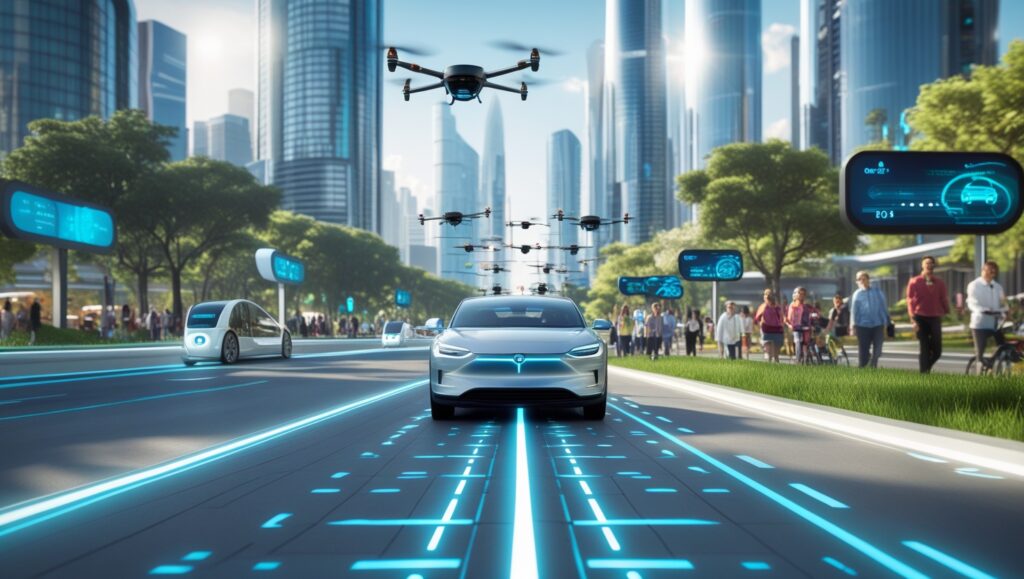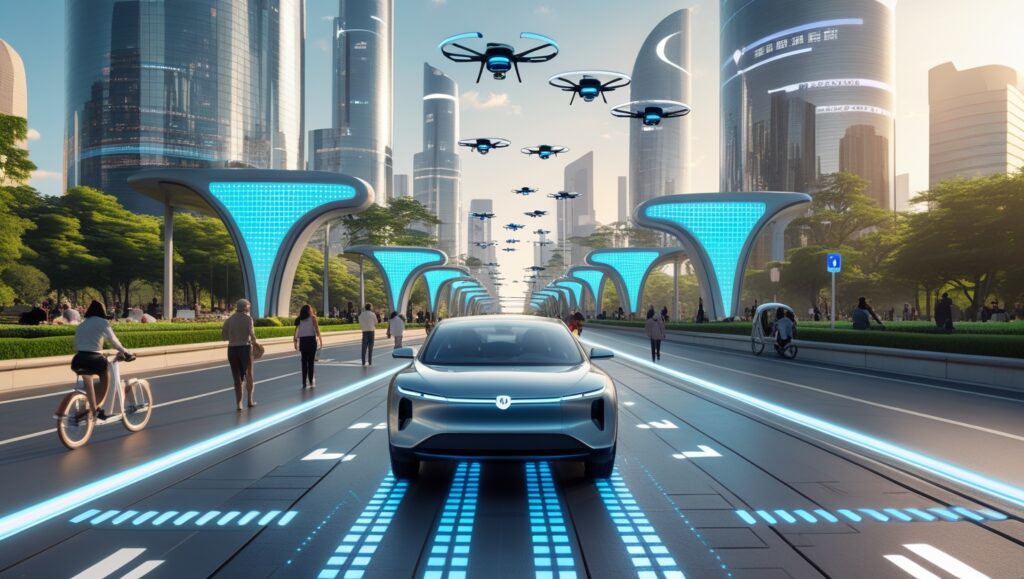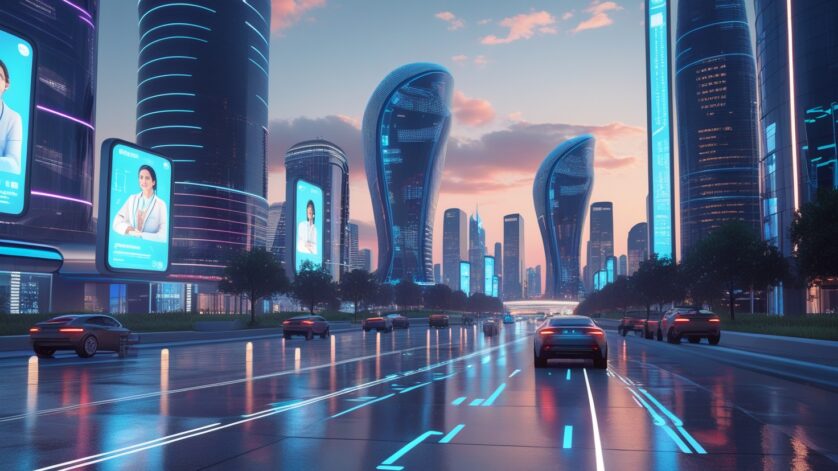Artificial intelligence (AI) is no longer a futuristic concept confined to science fiction novels or tech expos. AI has seamlessly integrated into our daily lives, powering tools and technologies that simplify how we work, learn, and live. With its rapid evolution, AI has become a driving force behind many of the advancements shaping our world today. This article explores how AI is transforming various aspects of life, the opportunities it brings, ethical concerns it raises, and what the future holds.
If you’re curious about the role AI plays in everyday life and what’s on the horizon, keep reading for an in-depth look at its tangible impacts and exciting possibilities.
The Rise of Artificial Intelligence
Over the last decade, AI has experienced unprecedented growth. Powered by breakthroughs in machine learning, massive data collection, and increased computational power, AI technologies have transitioned from concept to reality. From assisting doctors with diagnoses to enabling personalized consumer experiences, artificial intelligence is reshaping industries and paving the way for smarter, more efficient systems.
Global investment in AI has also skyrocketed; the technology is expected to contribute $15.7 trillion to the global economy by 2030. Such growth highlights AI’s critical position in driving innovation and enhancing productivity across sectors.
The Importance of AI in Daily Life
Artificial intelligence has subtly woven itself into the fabric of daily life, streamlining mundane tasks and offering highly personalized experiences. What was once considered cutting-edge technology is now present in everyday routines, helping people save time, reduce errors, and improve convenience. Whether it’s a recommendation from Spotify, facial recognition to unlock your phone, or optimized delivery routes for e-commerce companies, AI serves as an invisible but impactful assistant.
Below, we’ll explore its influence in more tangible areas of life and work environments.

AI in Home and Lifestyle
AI has revolutionized how we interact with our homes, turning them into smarter, more connected spaces.
Smart Assistants
Tools like Amazon’s Alexa, Google Assistant, and Apple’s Siri have become virtual companions in millions of households. They help with simple tasks such as turning on lights, setting reminders, or playing music. Their natural language processing capabilities allow people to interact with technology in the same way they would with another human being, making AI feel increasingly accessible.
Smart Appliances and Home Automation
From thermostats like Nest to robot vacuums like Roomba, smart appliances powered by AI are reshaping home management. These technologies save energy, maximize efficiency, and offer convenience. For example, AI-powered refrigerators can track expiration dates, suggest recipes, and even place grocery orders.
AI in Healthcare
Healthcare is one of the industries where AI has made groundbreaking advancements, improving both patient outcomes and service efficiency.
AI-Powered Diagnostics
AI algorithms can now analyze medical imaging with incredible precision, assisting doctors in identifying diseases such as cancers and neurological conditions at earlier stages. For instance, platforms like Zebra Medical and Arterys use AI to scan medical records and spot abnormalities invisible to the human eye.
Personalized Medicine and Virtual Consultations
AI enables treatment plans tailored to individual patients by analyzing genetic information, health records, and even lifestyle data. Telehealth services, enhanced by AI-powered chatbots or virtual consultation platforms, allow patients to seek real-time medical advice without visiting a clinic.
AI in Education
Artificial intelligence is transforming how students learn and teachers teach, creating a personalized and adaptive education system.
Adaptive Learning Platforms
AI-powered tools like Duolingo and Byju’s use smart algorithms to customize lessons based on a student’s progress, strengths, and weaknesses. By continually monitoring performance, these platforms ensure that learning remains engaging and effective.
AI Tutors and Academic Support
Virtual assistants such as ChatGPT are now being used to answer complex questions, explain topics in detail, and even provide career guidance, simulating the role of a human tutor.

AI in Transportation
The transportation sector is another area undergoing significant changes thanks to AI.
Self-Driving Technology
Autonomous vehicles like those developed by Tesla and Waymo are no longer confined to research labs. These cars use AI to understand their surroundings, avoid obstacles, and transport passengers safely. While the technology is still evolving, self-driving cars have the potential to make roads safer and reduce congestion.
Predictive Traffic Management
AI is helping cities manage traffic flow more efficiently. Systems powered by AI can predict traffic patterns, adjust signal timings, and reroute drivers to decongest busy areas in real-time, reducing travel time and emissions.
AI and Employment
One of the most heated conversations surrounding AI revolves around its impact on jobs.
Job Creation vs. Job Displacement
AI-powered automation can handle repetitive and time-intensive tasks, reducing human effort and enhancing efficiency. While this has led to fears of job losses, AI is also creating new opportunities, particularly in fields like data analysis, robotics, and AI ethics.
Preparing for AI-Driven Careers
Upskilling is the best way to prepare for the AI revolution. Gaining expertise in data science, machine learning, or even fields like creative AI for content generation can ensure individuals stay relevant in an increasingly AI-dominated job market.
Ethical Concerns and Data Privacy
For all its advantages, AI does pose some challenges, particularly around ethics and privacy.
Surveillance, Data Use, and Transparency
AI systems rely heavily on massive amounts of data. This raises concerns about how that data is collected, stored, and used. Without proper regulation, AI can be used for unethical purposes, such as mass surveillance or spreading misinformation.
Regulations Around AI Usage
Governments and organizations are working to draft policies that ensure AI is used responsibly. Ethical considerations, fairness in algorithms, and transparency are becoming central conversations in the global AI landscape.
The Road Ahead (2025 & Beyond)
The future of AI is both exciting and unpredictable. By 2025, we expect to see further breakthroughs in areas like natural language processing, quantum computing, and general artificial intelligence.
AI’s ability to evolve into more human-like systems may allow for even deeper integration into our daily lives. For example, smarter virtual companions, precision farming to combat food shortages, and AI climate modeling to address global warming are just glimpses of the road ahead.
Responsible AI Adoption is the Key
AI has the potential to improve many aspects of life, offering unparalleled convenience, efficiency, and innovation. However, unlocking its full potential requires responsible adoption. Ethical frameworks, security measures, and open conversations about its societal impact will ensure AI remains a force for positive change.
Excited about the future of AI? Stay curious, invest in knowledge, and prepare to integrate AI into both your personal and professional life.

